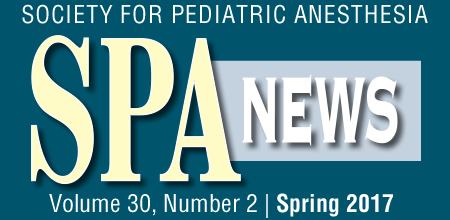spa-aap reviews
Sunday Session I: Emotional Intelligence
Reviewed by Echo Rowe, MD
Stanford Children’s Health/Lucile Packard Hospital
The topic of Emotional Intelligence was presented by Echo Rowe, MD (Stanford Children’s Health at Lucile Packard Hospital), bringing another element to the table on how to enhance patient care and improve the well being of physicians.
In 1990 Daniel Goleman who was a writer for the New York Times came across an article in a small academic journal by two psychologists in which they introduced the concept of ‘emotional intelligence’ as an ingredient to life success. The idea was so intriguing to Goleman that he started doing his own research and published a book five years later which became a national best seller and the start of a paradigm shift in the corporate world.
When the term ‘emotional intelligence’ (EI) was first coined, it was described as a type of social intelligence. Now it has come to more specifically focus on how we manage our emotions and those of others. The value of this ability is widely recognized in the business industry as a predictor of better work performance, increased job retention and improved customer experience. It is often described as an intangible quality or the sine qua non of leadership. This concept of emotional intelligence has now started to trickle down into the health care industry. While its value in improving patient care and satisfaction is hard to quantify, there is little doubt that not only do patients benefit from greater emotional intelligence of physicians, but it can also be the cornerstone of building resiliency and improving physician well being.
Next up, Dr. Rowe reviewed how our brains are hard wired to send information from sensory input directly to the amygdala to trigger an immediate response before our prefrontal cortex has had time to receive the same information, process it and modulate behavior. This emotional hijacking is far less adaptive in every day, non-life threatening situations. As a result, we have to strengthen the neural networks between the ‘feeling’ and ‘thinking’ part of our brain since acting on instincts is often not in our best interest.
There are several misconceptions about EI including that it is an innate personality trait or that it is associated with a specific personality type. Not only is it distinct from these, but it’s important to note that EI is also separate from your IQ and that people can increase their EI by learning skills and practicing them.
Emotional intelligence is divided into four components: Self Awareness, Self Management, Social Awareness and Relationship Management. First self-awareness refers to the ability to accurately perceive your own emotions in the moment with the challenge being to have enough awareness to allow time for the thinking part of our brain to catch up with the emotional part. Knowing what patterned responses already exist can help in training new constructive responses as part of self-management. This requires self-reflection and evaluation as well as strengthening neural connections to create new patterns of behavior. Social awareness involves perceiving the emotions of others through active listening and observation. Finally, putting all these skills together to build connections with those around us leads to better conflict resolution and productive communication.
After reviewing the background of EI and what it entails, the last part of the presentation focused on specific impacts on health care. There is some striking evidence that toxic emotions have a major impact on individual health on par with smoking. However, higher EI of physicians improves patient care through developing stronger bonds between physicians and patients, leading to increased trust, better compliance and improved patient satisfaction. Positive relationship management also improves communication amongst medical team members and fosters overall positive organizational change.
On the flip side of improving patient care is the impact EI can have on individual physician well being, especially in light of increasingly recognized high levels of burnout amongst physicians. Cultivating EI leads to improved behavioral responses to stress, more adaptive coping strategies, which in turn build resiliency and nurture professional relationships. It’s also important to note that improving EI is something that can be done on an individual level and doesn’t hinge on organizational change or support.
Since the concept of Emotional Intelligence as it relates to medicine is relatively new with most of the literature published in the last five years, we are still in the early phases of recognizing its impact. But there is already an opportunity for incorporating it into medical education and faculty development. The ACGME core competencies reflect performance indicators that encompass many of these skills and using simulation is another great tool to include the scope of EI skills as they directly relate to high stress scenarios.
In closing Dr. Rowe reminds us that improvements in our emotional intelligence can shift the way we approach the work environment, improve relationships with colleagues, strengthen your own resiliency, and make a real difference in the overall quality of care you provide patients and their families. The key is practice.






